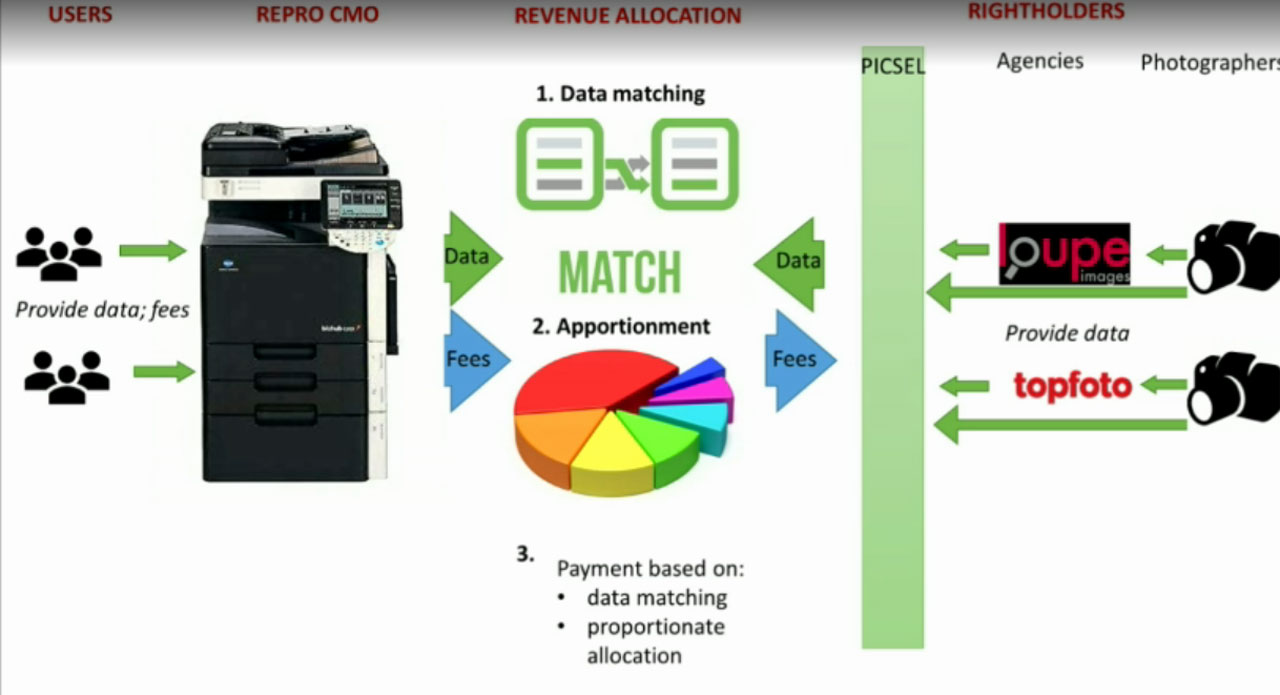The music industry wants more money, especially from Google, the odds are good.
The print publishers want the same, they will get nothing.
The film industry in turn is against such fixed price contracts and insists on a strict filtering and blocking system.
The first two rounds of so-called stakeholder dialogues on the implementation of the Copyright Directive in the EU are over. The Commission had called the dialogues in the face of fierce discussions about upload filters. And it turned out that there are two completely different ideas about the use of upload filters among the law-abusers.
On Tuesday, 50 academic lawyers from two dozen European faculties spoke with recommendations on the directive. The lawyers urge for the next dialogues in mid-December Mechanіsmen to safeguard the rights of users. In fact, the directive is so broad that it allows a strict filtering and erasure regime on a national basis. That is precisely what the Commission wants to avoid.
The Association Communia, which Wikimedia started a whole series of initiatives to disseminate free knowledge, has identified four different stakeholders among the rights holders in the first two stakeholder dialogues. Not surprisingly, these interests are defined by the business models of the respective rights exploitation industries, and these interests diverge.
The music industry is primarily interested in using the provisions in Article 17 - which implicitly includes the upload filters - as leverage to enforce higher compensation from the Internet platforms, write the observers of the Communia. Just as interested in collective licensing and less in upload filters, the sessions saw the publishing industry picking up royalties on titles and tearing articles, especially from Google. While the Association Communia of the music industry, due to the omnipresence of music on the large audience platforms, gives good chances to enforce higher compensation, the publishing industry has already suffered a first major setback.

In France, where the directive was already cast in national law in the autumn, the publishers will receive nothing for the time being. Google has changed its business model only slightly, from an "Opt Out" model was one with "Opt In". This means that current print articles and other publishing products will continue to be displayed under the search results by default, but only with a link and individual words from the title. For a clear presentation as before, namely with full title and parts of the attack, the publishers Google must grant a free license in France.
Google argues quite simply along its business model and that seems legally vulnerable. Customers can book specific keywords on Google and place advertisements next to the search results, the results of the search itself - especially their order and presentation - remain unaffected. Google does not charge for it - and will pay nothing for it. Since about one third of all network sales come directly through the Google search engine, it is already foreseeable that this European "power protection regulation" will work just as little as the national regulations in Germany and Spain, which have failed miserably.
The interests of the film industry are completely different than those of the publishing houses and the music industry. Since the film industry does not market its products directly, but only through selected partners such as movie chains and then via streaming services, there is no interest whatsoever in broad and collective licensing. Rather, the film industry demands a "filter set" (as the opponents call it) because its primary goal is to ensure the exclusivity of its film productions.
Until now, there have been network blockades of websites on a national basis and requests for providers to delete certain content. A strict filter regime that is possible within the framework of the directive, which already prevents the upload of copyright-protected material, is therefore entirely within the meaning of the film industry. And then the Association Communia identified a group of other stakeholders at the first two meetings. Among all the millionaire interest groups in the rights exploitation industry, there was also a small group of creators producing those media holdings that are being marketed by the recycler.

It is obvious why the European Commission has a particular interest in not over-approving national laws. As in the case of data retention, a new legal patchwork carpet threatens to emerge in the EU due to very different national implementations. That's why in Brussels they want to limit the collateral damage to the European Internet economy through the accompanying stakeholder talks, because they are already done. It will take a good two years for a general line to transpose the directive into national laws to have emerged across the EU. Until then, no investor will invest in European web services where enduring public interactions of users play a major role.
Source (German): https://fm4.orf.at/stories/2994444/
(Translated with Google)
The print publishers want the same, they will get nothing.
The film industry in turn is against such fixed price contracts and insists on a strict filtering and blocking system.
The first two rounds of so-called stakeholder dialogues on the implementation of the Copyright Directive in the EU are over. The Commission had called the dialogues in the face of fierce discussions about upload filters. And it turned out that there are two completely different ideas about the use of upload filters among the law-abusers.
On Tuesday, 50 academic lawyers from two dozen European faculties spoke with recommendations on the directive. The lawyers urge for the next dialogues in mid-December Mechanіsmen to safeguard the rights of users. In fact, the directive is so broad that it allows a strict filtering and erasure regime on a national basis. That is precisely what the Commission wants to avoid.
The Association Communia, which Wikimedia started a whole series of initiatives to disseminate free knowledge, has identified four different stakeholders among the rights holders in the first two stakeholder dialogues. Not surprisingly, these interests are defined by the business models of the respective rights exploitation industries, and these interests diverge.
The music industry is primarily interested in using the provisions in Article 17 - which implicitly includes the upload filters - as leverage to enforce higher compensation from the Internet platforms, write the observers of the Communia. Just as interested in collective licensing and less in upload filters, the sessions saw the publishing industry picking up royalties on titles and tearing articles, especially from Google. While the Association Communia of the music industry, due to the omnipresence of music on the large audience platforms, gives good chances to enforce higher compensation, the publishing industry has already suffered a first major setback.

In France, where the directive was already cast in national law in the autumn, the publishers will receive nothing for the time being. Google has changed its business model only slightly, from an "Opt Out" model was one with "Opt In". This means that current print articles and other publishing products will continue to be displayed under the search results by default, but only with a link and individual words from the title. For a clear presentation as before, namely with full title and parts of the attack, the publishers Google must grant a free license in France.
Google argues quite simply along its business model and that seems legally vulnerable. Customers can book specific keywords on Google and place advertisements next to the search results, the results of the search itself - especially their order and presentation - remain unaffected. Google does not charge for it - and will pay nothing for it. Since about one third of all network sales come directly through the Google search engine, it is already foreseeable that this European "power protection regulation" will work just as little as the national regulations in Germany and Spain, which have failed miserably.
The interests of the film industry are completely different than those of the publishing houses and the music industry. Since the film industry does not market its products directly, but only through selected partners such as movie chains and then via streaming services, there is no interest whatsoever in broad and collective licensing. Rather, the film industry demands a "filter set" (as the opponents call it) because its primary goal is to ensure the exclusivity of its film productions.
Until now, there have been network blockades of websites on a national basis and requests for providers to delete certain content. A strict filter regime that is possible within the framework of the directive, which already prevents the upload of copyright-protected material, is therefore entirely within the meaning of the film industry. And then the Association Communia identified a group of other stakeholders at the first two meetings. Among all the millionaire interest groups in the rights exploitation industry, there was also a small group of creators producing those media holdings that are being marketed by the recycler.

It is obvious why the European Commission has a particular interest in not over-approving national laws. As in the case of data retention, a new legal patchwork carpet threatens to emerge in the EU due to very different national implementations. That's why in Brussels they want to limit the collateral damage to the European Internet economy through the accompanying stakeholder talks, because they are already done. It will take a good two years for a general line to transpose the directive into national laws to have emerged across the EU. Until then, no investor will invest in European web services where enduring public interactions of users play a major role.
Source (German): https://fm4.orf.at/stories/2994444/
(Translated with Google)


